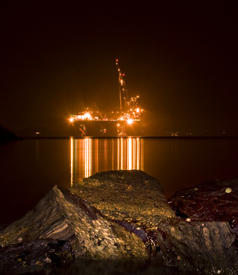Alex Jones was on 'The View' today .......... defending Charlie Sheen. Do yaw'll remember back a while ago that Charlie was supposed to be in "Loose Change" 2. I wonder if Alex Jones is the reason Charlie seems to be in dire straights now? hmmmmmm
I sat for almost a half hour waiting for 'The View' to load and then when it seemed like it was finally getting there, the Friday show was the one on the screen.
Do you remember back in the day that when the 'Loose Change' boys were supposed to be on 'The View' that it was pre-empted? hmmmmm, was that before Alex Jones invited Jason Burmas to work for him? (I met the boys way back when at a book store in Phoenix and there were 3 of them. I talked privately to one and I'll be damned if I remember if it was Dylan Avery or the other.) I'm not gonna go look now as my system is not stable and I'm not even sure about Burmas first name but if you guys want, do what you do, k?
I'm gonna go now and try to send this in email. Oh yeah, BTW, I went into my yahoo email yesterday and there was somebody editing my send emails and erasing many of them. ...cal
http://theview.abc.go.com/videos/The_View_in_%3A60
(See Corrections & Amplifications item below)
President Barack Obama's decision to drop plans to deploy a ballistic-missile defense shield in Central Europe -- drawing immediate cheers in Moscow and criticism elsewhere -- is a gamble by the U.S. that scaling back its defense ambitions will improve security in the long run.
The U.S. explained the reversal by saying it would lead to a more effective defense because the system that had been planned was designed for the wrong threat, long-range missiles from Iran. Current intelligence suggests shorter-range missiles are more likely to be developed sooner, and they can be better combated by a simpler system, U.S. officials said.
The decision was attacked by Republicans in Congress and Bush-era defense officials, who questioned the new intelligence estimates and accused the administration of putting its relations with the Kremlin ahead of the security of NATO allies in Europe.
The U.S. about-face was a major diplomatic coup for Moscow, which has fiercely opposed the previous plan to put a battery of 10 ballistic missile interceptors in Poland and a radar in the Czech Republic.
Moscow said its own nuclear arsenal was the target, rather than any threat from Iran as the former Bush administration said. In November, Russian President Dimitry Medvedev threatened to station tactical missiles on Poland's border if the U.S. system were deployed. Mr. Medvedev on Thursday gave no indication that Russia would respond to the U.S. shift with greater cooperation, for example in pressuring Iran over its nuclear-fuel program. Other Russian officials said explicitly Thursday that wouldn't happen.
President Barack Obama's decision to drop plans to deploy a ballistic-missile defense shield in Central Europe -- drawing immediate cheers in Moscow and criticism elsewhere -- is a gamble by the U.S. that scaling back its defense ambitions will improve security in the long run.
The U.S. explained the reversal by saying it would lead to a more effective defense because the system that had been planned was designed for the wrong threat, long-range missiles from Iran. Current intelligence suggests shorter-range missiles are more likely to be developed sooner, and they can be better combated by a simpler system, U.S. officials said.
The decision was attacked by Republicans in Congress and Bush-era defense officials, who questioned the new intelligence estimates and accused the administration of putting its relations with the Kremlin ahead of the security of NATO allies in Europe.
The U.S. about-face was a major diplomatic coup for Moscow, which has fiercely opposed the previous plan to put a battery of 10 ballistic missile interceptors in Poland and a radar in the Czech Republic.
Moscow said its own nuclear arsenal was the target, rather than any threat from Iran as the former Bush administration said. In November, Russian President Dimitry Medvedev threatened to station tactical missiles on Poland's border if the U.S. system were deployed. Mr. Medvedev on Thursday gave no indication that Russia would respond to the U.S. shift with greater cooperation, for example in pressuring Iran over its nuclear-fuel program. Other Russian officials said explicitly Thursday that wouldn't happen.

![[U.S. Missile U-Turn Roils Allies]](http://si.wsj.net/public/resources/images/P1-AR641_MISSIL_F_20090917183244.jpg) Defense Department
Defense Department 
![[SB125319123647519445]](http://s.wsj.net/public/resources/images/OB-EL904_missil_D_20090917081127.jpg)







 Palestinian Prime Minister Salam Fayyad resigned
Palestinian Prime Minister Salam Fayyad resigned